Afghan villager describes ‘big soldier with blue eyes’ who kicked and beat him, Roberts-Smith trial hears
An Afghan villager has described a “big soldier with blue eyes” who allegedly beat him and kicked his uncle at Ben Roberts-Smith’s defamation trial.
An Afghan villager has alleged in the Ben Roberts-Smith’s defamation trial that a “big soldier with blue eyes” repeatedly beat him and then kicked his uncle in a way similar to what Nine newspapers has claimed the war hero had done, which Mr Roberts-Smith has denied.
He also said the “big soldier” had a wet uniform with “sand from the river” on it, which was consistent with Mr Roberts-Smith swimming across a river on the same day to shoot a Taliban insurgent.
Describing how “the big soldier” allegedly punched, kicked and pushed him, Mohammed Hanifa said the soldier had at first kicked his uncle Ali Jan “really hard”.
“The big soldier he came, he said something to him and Ali Jan smiled and then he kicked him really hard and fell on his back.
“At this time I really got scared.”
Mr Hanifa said Ali Jan’s “hands were tied in the back” and then he was “rolling down, rolling downuntil he reached the river.”.
The witness then said he saw two other soldiers drag “Ali Jan towards the berry tree” after which he heard shots and later he followed drops of blood and saw Ali Jan’s body.
He said Ali Jan had been hit in his right side, the left side of his skull, his belly, that flesh was missing on his left hand and a tooth was also broken.
But under cross-examination by Mr Roberts-Smith’s lawyer, Bruce McClintock SC, Mr Hanifa was accused of introducing the “berry tree” into evidence.
Asked whether he had signed a statement using his fingerprint several months ago, Mr Hanifa - who cannot read or write - agreed he had and said both it and his testimony on Monday had been true.
“It was a lie when you said you’d seen Ali Jan taken to the berry tree,” Mr McClintock asked.
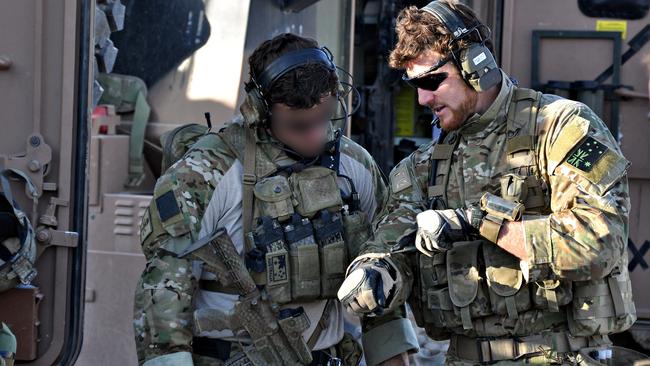
Mr Hanifa said he had seen that part happening, but agreed he had only heard shots fired afterwards.
Asked to describe how the shots sunded, Mr Hanifa said “it happened eight years ago”.
Mr Hanifa also described how a soldier who was an interpreter had held a pistol to his head, struck him with the weapon and repeatedly ask him “are you a Talib” (a Taliban member).
Mr Hanifa, who is the stepson of Ali Jan’s sister, is one of four Afghan villagers testifying against Mr Roberts-Smith in his defamation proceedings against Nine Newspapers.
He gave evidence via audio-visual link from Kabul, with a Pashto language interpreter based in Ontario, Canada, translating.
Nine alleges Ali Jan was unarmed on September 11, 2012, when they claim he was unlawfully killed by Australian forces.
It was on that day that Mr Roberts-Smith and other SAS troops arrived in Darwan looking for a rogue Afghan army officer, Hekmutullah, who had executed three Australian soldiers the previous month.
Nine also alleges Mr Roberts-Smith kicked an unarmed Ali Jan down a cliff and then ordered the man be killed.
Mr Roberts-Smith denies the shooting was unlawful, saying on that day SAS forces killed a “spotter” – a person spying on behalf of Taliban insurgents and reporting the location and other details of Australian troops to the enemy.
The war veteran has previously told the trial: “I have never shot an unarmed man”.
Mr McClintock also accused Mr Hanifa of “simply” making up other evidence about what soldiers did in Darwan on the day Ali Jan died.
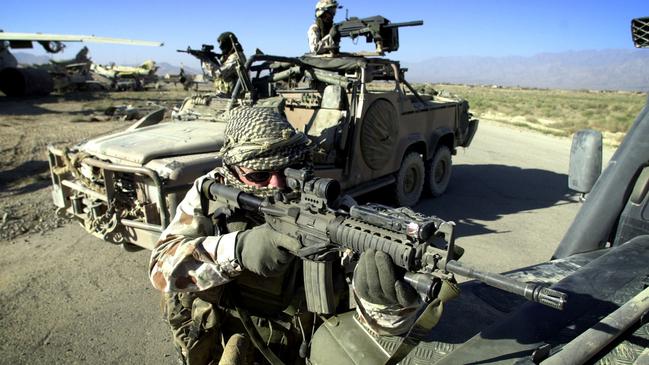
He did so in a short cross-examination of Mr Hanifa which will continue tomorrow.
In evidence given in response to questioning by Nine’s lawyer, Nicholas Owens SC, Mr Hanifa described how the “big soldier” had started punching, kicking and pushing him after the interpreter had begun interrogating him.
“He (the interpreter) took out a pistol and put it on my throat and he said ‘you are a Talib’,” Mr Hanifa told the court.
“I said we don’t have a rifle. He pointed the pistol to my head and he hit me with the pistol.
“He said ‘show me Hekmutullah otherwise I will shoot you in the head’.”
He said he had been forced to gaze into the eyes of “the big soldier” while the interpreter translated the soldier’s questions.
Mr Hanifa said soldiers had then brought Ali Jan forward and the interpreter had asked him a question and Ali Jan had smiled.
“I told Ali Jan ‘don’t laugh or smile, they do not like it when you smile or laugh’.
“The big soldier he came out, he said something to him and Ali Jan smiled, then he kicked him really hard and he fell on his back.
Mohammed Hanifa, who has lived all his life in the village of Darwan, in central Afghanistan described the dramatic moments when Australian SAS soldiers landed in his village.
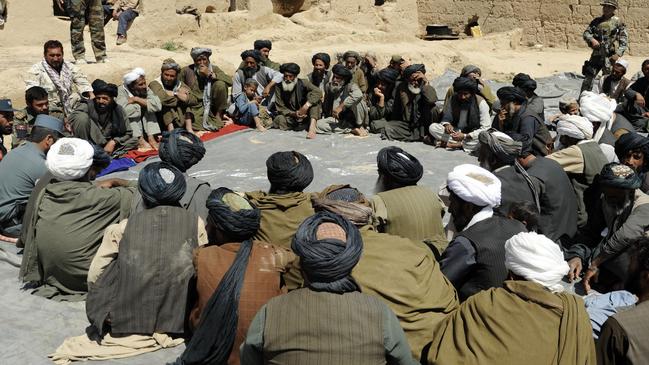
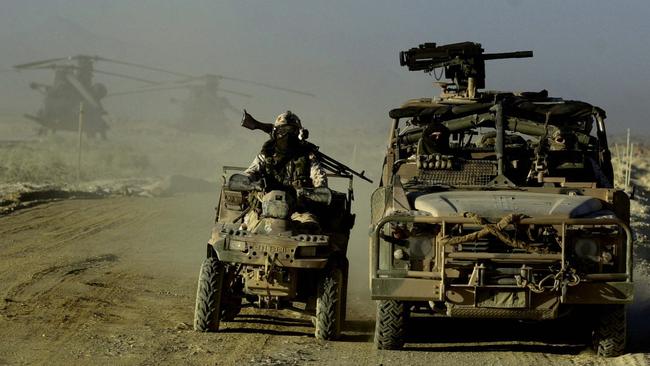
Now aged 38, Mr Hanifa said he heard, then saw at least four helicopters landing in and around his village before seeing his relative Ali Jan approach him with two donkeys.
He said he “took one of the donkeys from him thinking we would look like nomads and … the foreign soldiers would think we are nomads”.
But when they took off, “two shots were fired at us so we returned back” and Mr Hanifa saw soldiers going through houses in the village, including his neighbour’s house from which he could hear “the noise of women and children”.
“I said there is a raid,” he told the court, saying he told his brother, “The soldiers are coming, the soldiers are coming.
“They were coming, coming, coming.”
Mr Hanifa said a soldier came out with a dog and pointed a flashlight at him and said “get up, stand up”.
He said that he told Ali Jan that “in this type of situation the soldier (will) shoot you”.
Mr Hanifa said when he came out and went towards a guesthouse he shared with his neighbour, Man Gul, “the soldier grab me from my neck”.
In front of Man Gul’s house there was a small wall and the soldier, “he took my head and hit it with that wall”.
Mr Hanifa, a crop farmer, is the first of four Afghan villagers including Man Gul who are testifying against Ben Roberts-Smith at the defamation trial where Nine newspapers alleges Ali Jan was murdered in 2012 by order of the Victoria Cross recipient.
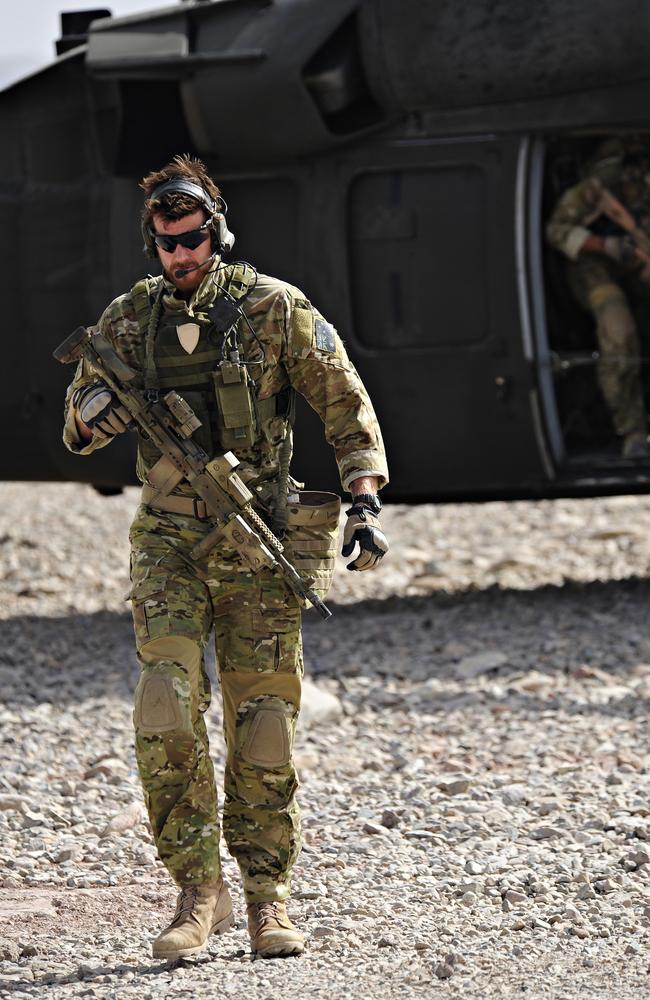
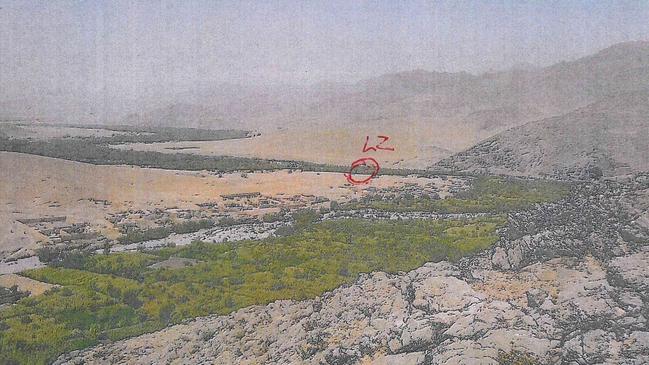
In often painstaking evidence on Monday, Mr Hanifa placed dots on photos of his village, where he has lived all his life.
Kabul-based lawyer Thomas Kraemer, from whose office the villagers are testifying, then wrote letters to alphabetically identify houses, a mill, a graveyard and trees in Darwan village.
On the day he died, the man named Ali Jan, who was a cattle farmer and wood seller, was visiting Darwan where his sister lived.
Mr Hanifa said at the time of Ali Jan’s death he was living with nine of his 12 brothers and their families in his father’s house in Darwan.
The defamation trial resumed on Monday for just a week so that the villagers could give evidence before security in Afghanistan disintegrates with the rise of the Taliban following the withdrawal of allied troops.
The trial has been in limbo since Sydney’s Covid-19 lockdown and is likely to be adjourned after the Afghan evidence for several more weeks.
Mr Roberts-Smith, who spent almost three weeks in the witness box, has earlier testified that he did not push Ali Jan off a cliff.
He has told the court that there was no cliff in the location in Darwan, but instead a creek bed with a raised side.
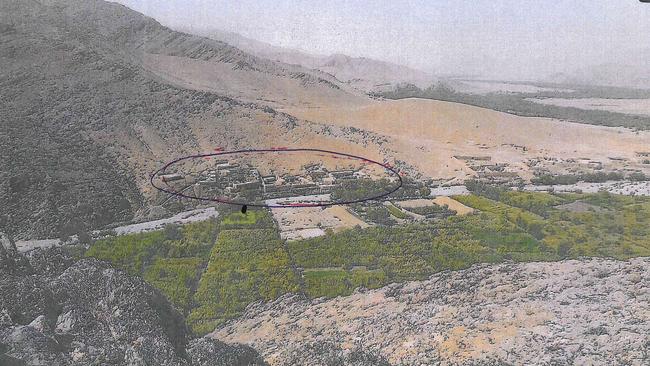
On Monday, Nine Newspapers’ barrister Nicholas Owens SC repeatedly asked Mohammed Hanifa to identify an embankment or slope in the creek in the middle of Darwan.
Mr Hanifa could not.
Asking the interpreter in Canada to ask the question once again, Mr Owens said: “On the day Ali Jan died, does he remember if there was an embankment or slope up from creek bed to the fields?”
Mr Hanifa’s answer via the interpreter was: “No, nothing like that.”
Ali Jan was allegedly shot in a cornfield on the outskirts of Darwan, after Mr Roberts-Smith and fellow soldiers arrived by helicopter on September 11, 2012.
They Australian troops were looking for a rogue Afghan army officer, Hekmutullah.
Known as “Jungle Effect”, Hekmutullah had murdered three Australian soldiers, Corporal Stjepan Milosevic, Sapper James Martin and Private Robert Poate, the month before.
Mr Hanifa said he “didn’t know” Hekmutullah, but drivers had come to Darwan with news that anyone who could provide information about Hekmutullah “would be given $500”.
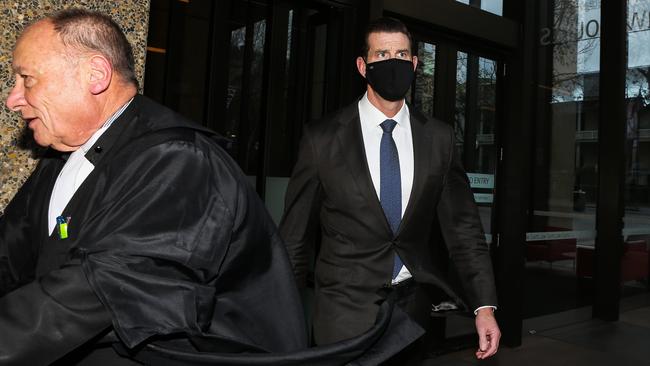
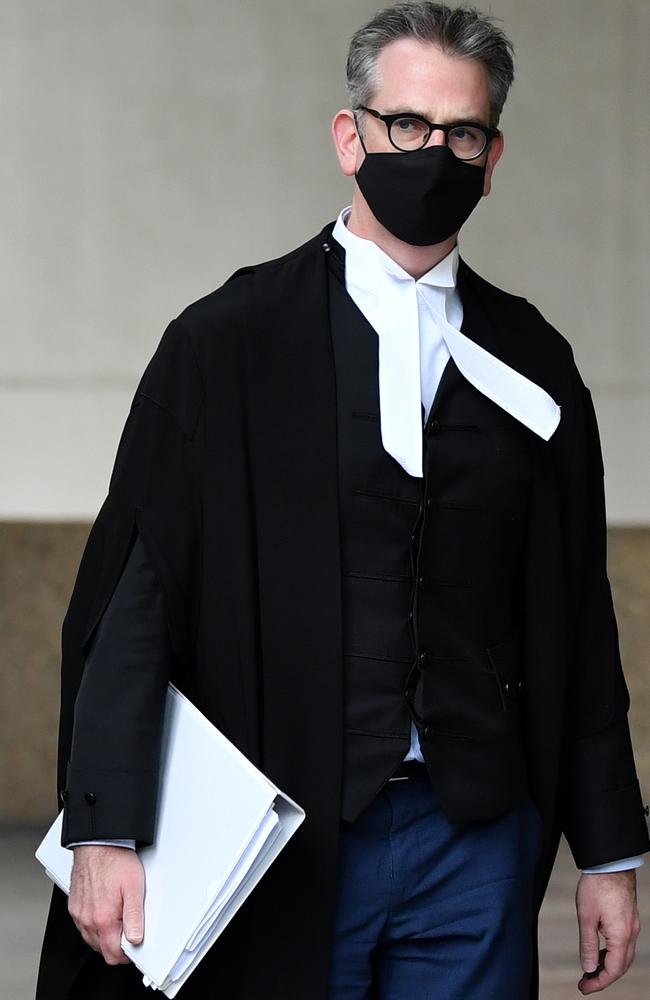
Mr Roberts-Smith is suing Nine Newspapers and three journalists for articles published in three newspapers from the second half of 2018.
He says the reports falsely claim he committed multiple war crimes, bullied other soldiers and that he assaulted a women with whom he was having an affair.
The four Afghan witnesses are current or former residents of Darwan village in central Afghanistan and at least three are related to the dead man.
Nine Newspapers’ allegations are that Mr Roberts-Smith committed or was complicit in six war crimes from five Afghanistan missions between 2009 and 2012, and the domestic violence assault in Canberra in March 2018.
Mr Roberts-Smith has repeatedly denied all allegations, saying he was “sad” and angered by the reports which have destroyed his reputation.
He told the court he had never assaulted the woman known as Person 17, nor any woman, and that since news reports naming him had been published he felt he was looked at in the street as a woman basher.
Mr Roberts-Smith told the court he had devoted his life to fighting for his country and had done so “with honour”.
Australia’s most decorated living soldier, Mr Roberts-Smith received the Medal of Valour and the Victoria Cross for his service in Afghanistan.
Since the Nine reports, his lawyers have told the court, his post-army career as a public speaker and anti-domestic violence advocate has evaporated.
Bruce McClintock SC told the court he would be seeking uncapped record damages for his client if they won the case.
The trial is expected to last for this week, then be put on hold again until the current Covid-19 lockdown ends.
The majority of witnesses for Nine’s defence reside in Queensland and Western Australia which have closed borders to NSW.
The 60 witnesses expected to testify include SAS soldiers giving evidence for and against Mr Roberts-Smith, and his ex-wife Emma and her schoolfriend Danielle Scott testifying against him.

